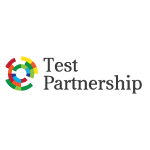Adaptive testing, a dynamic approach that tailors questions to an individual's abilities, has gained prominence in both educational and professional settings. Classical test theory is being replaced more readily with item response theory. While adaptive testing offers many advantages, it also presents unique challenges, particularly concerning academic dishonesty. In this article, we will explore the concept of adaptive testing and delve into the strategies and technologies available to safeguard against cheating in this dynamic assessment environment.
Understanding Adaptive Testing
Adaptive testing represents a departure from traditional one-size-fits-all assessments. Rather than presenting a fixed set of questions to all test-takers, adaptive tests adjust the difficulty of questions based on the individual's responses. If a test-taker answers correctly, the next question is more challenging; if they answer incorrectly, the difficulty decreases. This adaptive approach ensures that the assessment accurately measures a test-taker's abilities within a shorter timeframe, making it a much better candidate experience when volume hiring.
Item banking is essential for the implementation of adaptive testing. An item bank provides a rich source of questions that can be used in the adaptive testing process. The use of an item bank allows adaptive tests to be tailored to various content domains and difficulty levels, ensuring that the adaptive test can assess a wide range of skills and abilities effectively.
The Rise of Academic Dishonesty
The digital age has brought convenience and accessibility to education, but it has also facilitated new avenues for academic dishonesty. Cheating in adaptive testing can take various forms:
Collaboration: Test-takers may collaborate with others, sharing questions or answers in real-time.
Online Resources: The internet provides a vast reservoir of information, making it tempting for test-takers to seek answers online during a test.
Remote Assistance: Remote proctoring technology has made it challenging to detect whether someone is receiving assistance off-screen.
Impersonation: Some test-takers may ask others to take the test on their behalf, leading to identity fraud.
Safeguarding Against Academic Dishonesty in Adaptive Testing
There are several ways that organisations can prevent cheating in their adaptive tests:
Enhanced Proctoring: To address the challenge of remote testing, institutions can deploy advanced proctoring services that employ AI to monitor test-takers for signs of cheating. This includes facial recognition, screen recording, and keystroke analysis.
Randomisation: Adaptive tests can incorporate randomized questions from a pool, making it difficult for test-takers to predict the content.
Time Limits: Implementing strict time limits on individual questions can discourage test-takers from seeking external assistance.
Anti-Plagiarism Software: In cases where written responses are required, anti-plagiarism software can detect copied or unoriginal content.
Interpreting Adaptive Test Results
Adaptive testing not only presents challenges in maintaining integrity but also in interpreting results accurately. Since the test adapts to the test-taker's performance, understanding the scores requires a nuanced approach:
Understanding the Adaptation Process: Test-takers need to comprehend that the test will start with moderate difficulty and adapt based on their responses. This helps manage expectations.
Scoring Algorithms: Institutions must provide clear explanations of the scoring algorithms used in adaptive tests, which may differ from traditional scoring methods.
Comparative Scores: Comparing adaptive test scores to traditional test scores can be misleading. Institutions should provide guidelines on how to interpret and use adaptive test results effectively.
Feedback and Improvement: Adaptive tests can provide valuable feedback on a test-taker's strengths and weaknesses. Encouraging test-takers to use this information for self-improvement can enhance the educational value of the assessment.
Conclusion
Adaptive testing represents a powerful tool in the educational and professional assessment toolbox, offering tailored insights into an individual's abilities. However, the digital age has also brought new challenges in the form of academic dishonesty. To safeguard against cheating in adaptive testing, institutions must adopt robust security measures, including enhanced proctoring and randomised questions.








